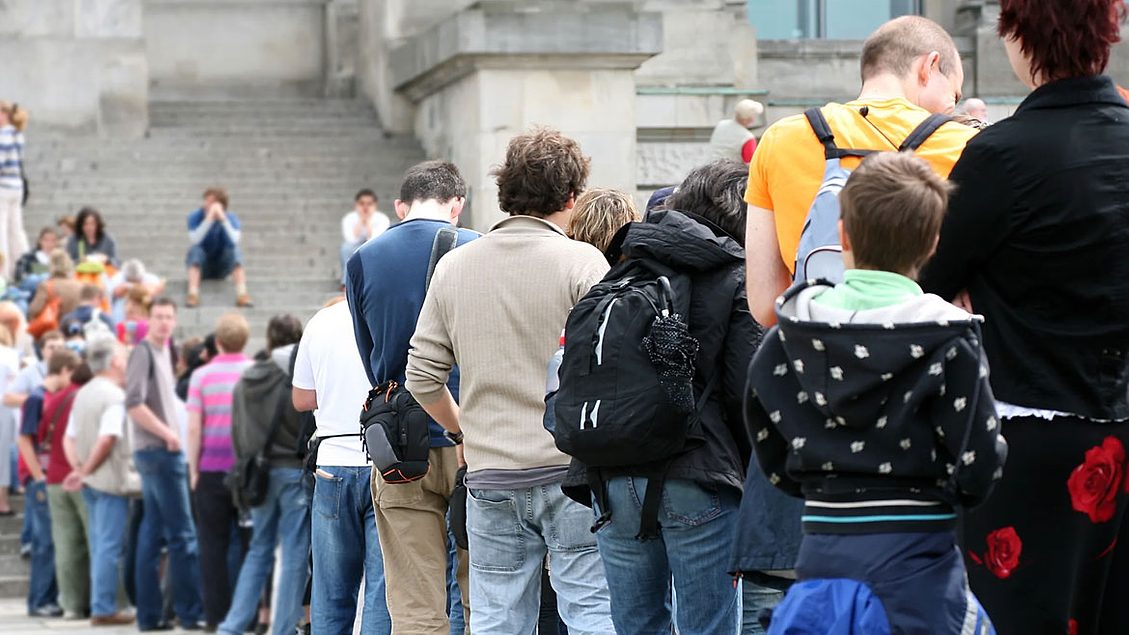- Sony is giving away free 65-inch 4K TVs right now - here's how to qualify for the deal
- Continuous Threat Exposure Management (CTEM): The Future of Vulnerability Assessment
- This smart luggage lock has effectively replaced the AirTag for me when traveling
- Don't make this common Nintendo Switch 2 mistake - this is the microSD card I use
- This clever keychain accessory has made my life so much easier (and it's cheap)
Event safety: How one day can affect a company's reputation

The reputation of an organization can be built, or destroyed, through a single event. This is especially true for arenas and stadiums, who hold the reputation of a sports team, a city and often an artist in their hands. These arenas are frequently tied to organizations in other industries that have a high investment in protecting these events.
Take the following organizations as an example:
- AT&T
- Bank of America
- Mercedes-Benz
- Kroger
- Tropicana
- Gillette
- State Farm
On paper, these organizations don’t have much in common. Some are financial institutions, some are service providers or grocery stores. However, all of these companies have an event space in their name. If an incident were to occur, their brand would be involved in headlines, associating them with whichever scandal has occurred. For those companies without public-facing retail locations, this event space is the only time consumers are interacting directly with their employees.
Poor planning can lead to stressed out staff, displeased executives and disappointed guests, damaging an organization’s reputation on multiple levels. Even if the issues are rectified, the loss in trust is hard to repair. Previously overworked staff may be reluctant to help, and guests may refuse to attend if all they can remember is long lines, cold food or extreme temperatures.
More important than the aesthetics of an event is the event’s safety. Event incidents such as the bombing at an Ariana Grande concert in Manchester leave long-lasting impressions on the community. Employees may quit, and rehiring will be difficult unless their safety can be guaranteed. Concert venues have the additional concern of navigating talent concerns. If over-eager fans are able to jump over barricades and bypass security, artists will hesitate to agree to work in that space.
Even if staffing issues have been resolved, security leaders have to be prepared to work to rebuild their consumers’ trust. Guests need to feel safe entering or sending their children into a space. Even if the events are unrelated, such as a sports game or a concert, with entirely different security teams, consumers often won’t know the difference. An organization needs to ensure that not only their security teams are fully prepared, but any security team that enters their perimeter.
“It is very important to ensure that there is a legal contract in place to protect the agency from any liability issues. Ensuring that the organizer has insurance, and who is responsible for security is also extremely important,” Chief Arnaldo Bernabe, Director of Public Safety at The City University of New York, Hostos Community College, says. If an outside security team is entering an event space, that organization takes responsibility for how that event unfolds.
“The first step in securing an event involves getting to know more. Important considerations include: What is the event about? What type of event is it? Has it been held at the location before? Have there been any issues with the event at previous venues? How many people will it attract? Who will make up the majority of the audience, (young people, professional business people, older crowd, etc.) Will there be any elected officials, or other high profile VIPs, entertainers, influencers at the event? How has the event been advertised?” Bernabe says.
What physical safety measures (turnstiles, security cameras, alarms, mobile and fixed posts, panic alarms) are in place? Systems like these not only reduce the number of employees that need to be in specific locations, but also can provide an additional sense of security for guests.
This is where collaboration can really come in handy. Security leaders can prepare for an artist touring in their city by seeing how preceding concert venues handled the artists’ arrival. How was traffic redirected to reduce the likelihood of car accidents? If alcohol is involved, how were underage guests identified from those 21 and older? Could nearby public transit stations handle the increase in volume? Where does rideshare normally pick up, and does that location need to be changed? Is there a plan for guests who have a medical emergency? Are people waiting outside in the sun or the shade? How will minors be supervised throughout the event?
These partnerships can involve local law enforcement, state partners and nearby organizations. A sports arena may be dealing with stadium employees alongside those working for the visiting team. Clear communication is essential to ensure everyone is on the same page both during the event and in case of an emergency.
Even if they only happen once a year, events can leave a lasting impression — good or bad — to a company’s reputation. Securing them needs to be just as important as building security into everyday operations.

